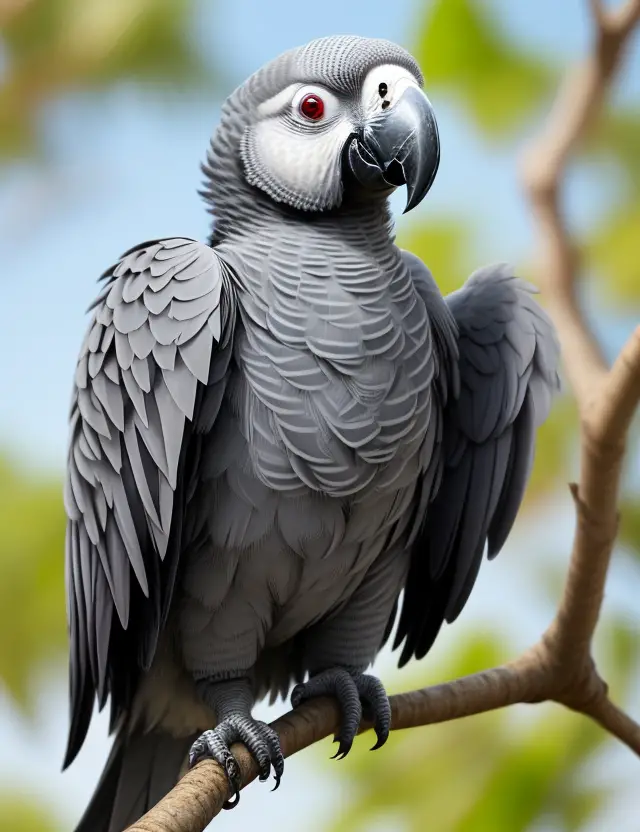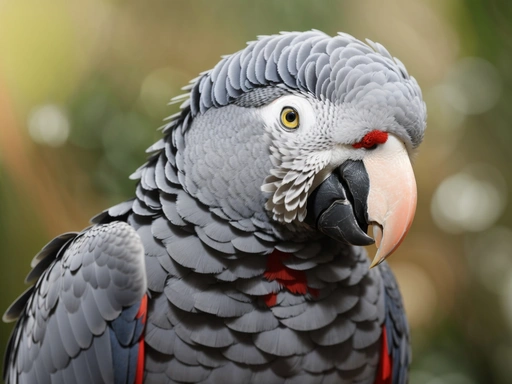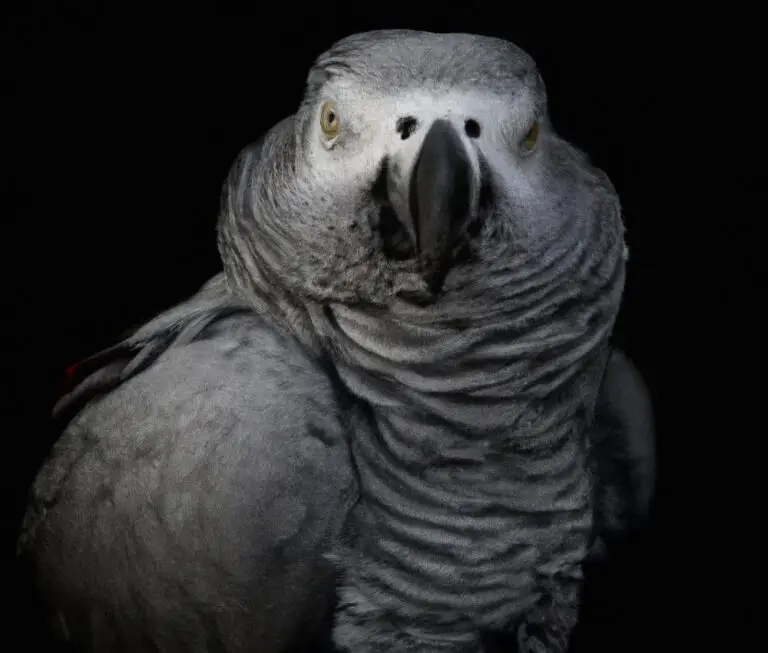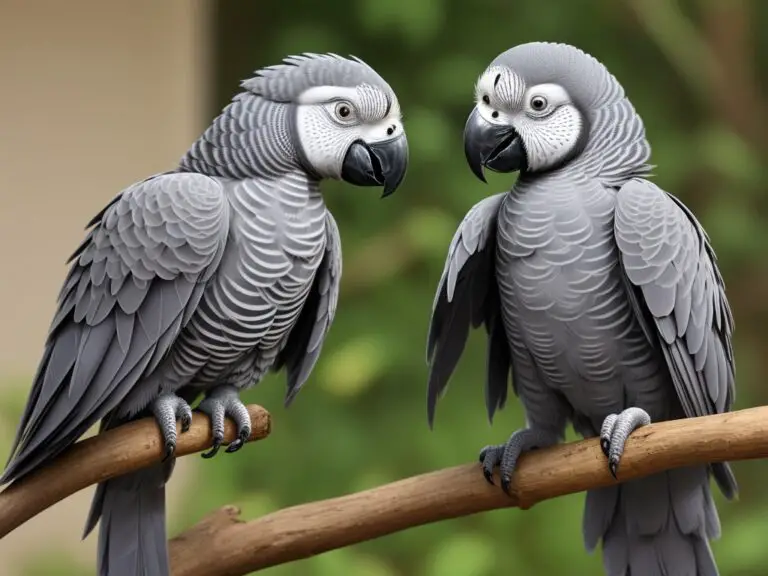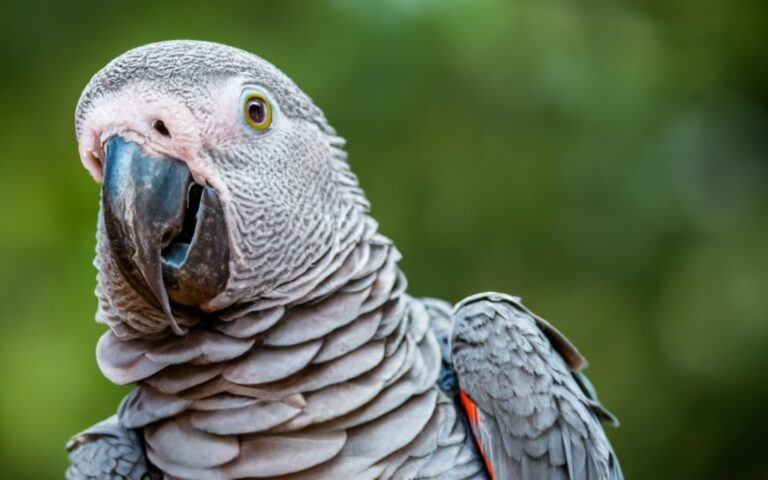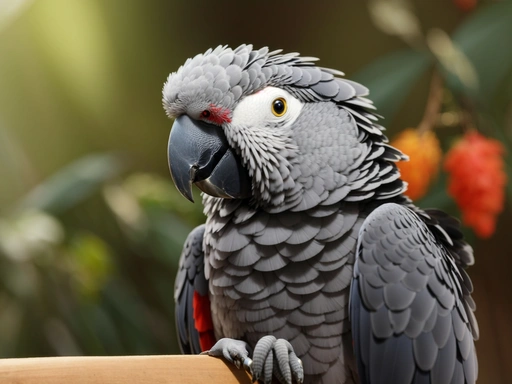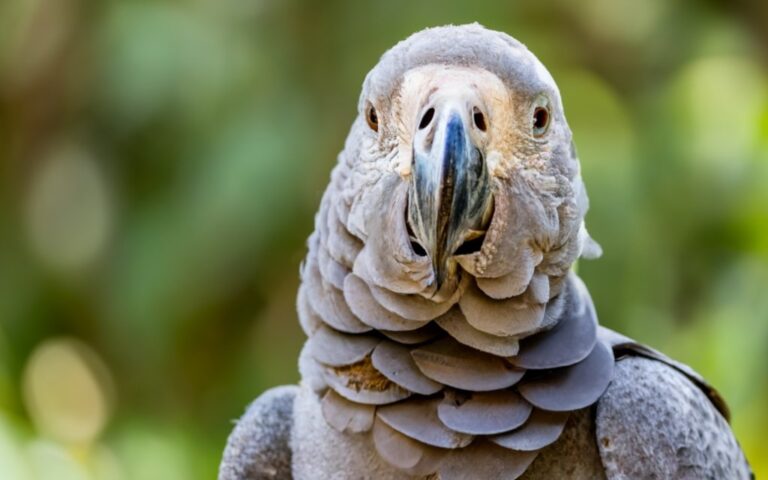Can African Grey Parrots Eat Celery?
Key Takeaways:
- African grey parrots can safely eat celery in moderation.
- Celery provides nutritional benefits for African grey parrots.
- Care should be taken to offer celery in appropriate sizes to prevent choking hazards.
- Consult with a veterinarian for a well-rounded diet plan for your African grey parrot.
Are you a proud African Grey parrot owner, constantly looking for nutritious and tasty foods to incorporate into your feathered friend’s diet? Well, look no further as I delve into the fascinating world of African grey parrots and their affinity for celery.
These intelligent creatures require a well-balanced diet to thrive, and I’m here to shed light on whether celery is a suitable addition to their menu.
From exploring the nutritional benefits of celery to potential risks and alternatives, let’s unravel the truth behind this crunchy green vegetable and its place in your parrot’s diet. Get ready to learn all about celery and your grey parrot’s diet in this informative article.
| Question | Answer |
| Can African grey parrots eat celery? | Yes, African grey parrots can eat celery. |
About African Grey Parrots
African Grey Parrots are highly intelligent and social birds known for their beautiful gray feathers and exceptional talking abilities.
They are native to the rainforests of West and Central Africa and have a lifespan of up to 50 years in captivity.
Appearance and Characteristics
African Grey Parrots are medium-sized birds known for their striking appearance.
They have a predominantly grey coloration with a red tail and a distinctive black beak.
These parrots have a stocky build and can grow up to 12-14 inches in length.
African Grey Parrots are known for their intelligence and ability to mimic human speech.
They have a playful and curious nature, making them popular pets among bird enthusiasts.
Habitat and Natural Diet
African Grey Parrots are native to the rainforests of West and Central Africa.
Their natural diet consists of a variety of fruits, nuts, seeds, and vegetation found in their habitat.
They also forage for minerals and clay.
Mimicking their natural diet is important for their overall health and wellbeing.
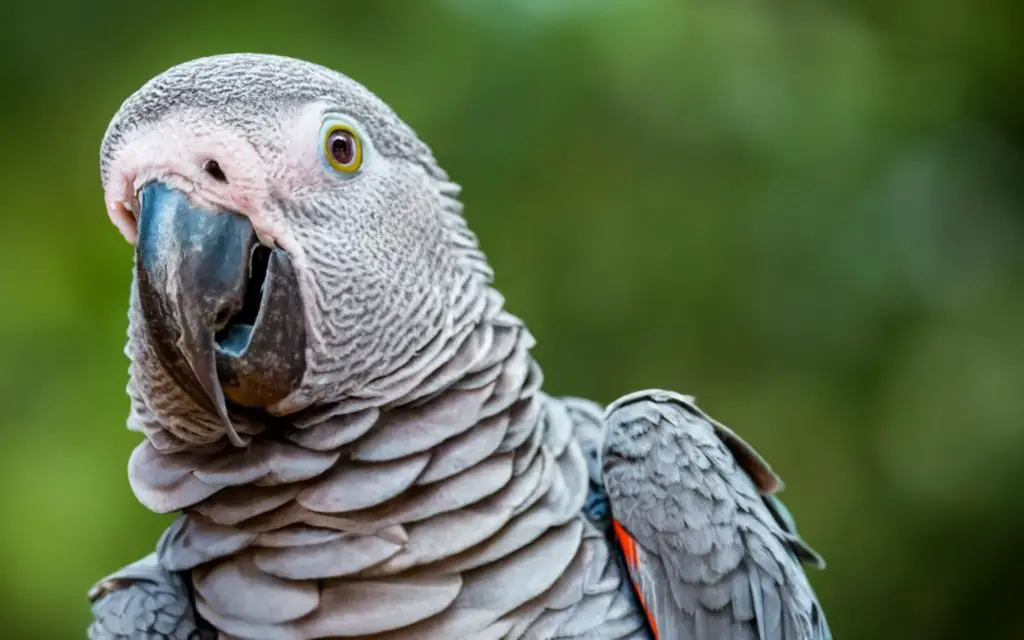
Lifespan and Behavior
African Grey Parrots have a lifespan of 40 to 60 years, making them long-lived companions.
They are highly intelligent and social birds, known for their ability to mimic speech and solve complex problems.
They thrive on mental stimulation and social interaction, requiring regular interaction and enrichment to keep them happy and healthy.
African Grey Parrots can also be sensitive and may develop behavioral issues if not properly cared for or if they experience stress or boredom.
Understanding the Nutritional Needs of African Grey Parrots
Understanding the Nutritional Needs of African Grey Parrots is essential for their health and well-being.
Overview of a Balanced Diet for Parrots
A balanced diet for parrots should include a mix of high-quality pellets, fresh fruits, vegetables, and seeds. Pellets provide essential nutrients, while fruits and vegetables offer vitamins and minerals.
Seeds can be given as treats but shouldn’t be the main part of their diet.
Variety is key to ensure they get all the necessary nutrients.
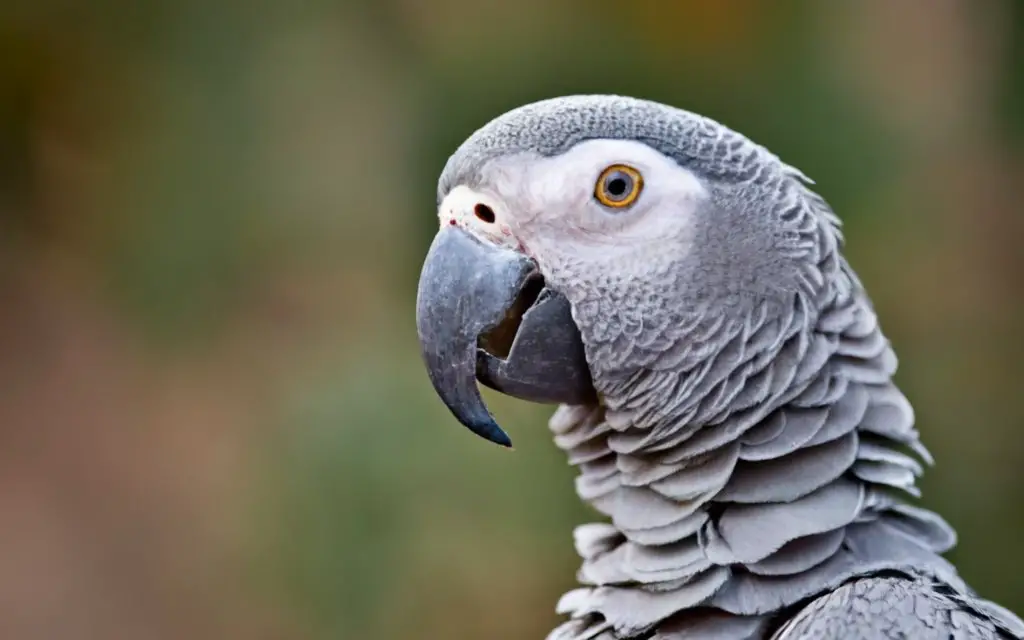
Specific Nutritional Requirements of African Grey Parrots
The specific nutritional requirements of African Grey Parrots include a balanced diet consisting of fresh fruits, vegetables, high-quality pellets, and limited amounts of seeds and nuts. They need adequate amounts of protein, carbohydrates, healthy fats, vitamins, and minerals for optimal health.
Additionally, they require low sodium and sugar intake to maintain proper organ function.
It’s crucial to provide a varied diet to meet their nutritional needs.
Importance of Fruits and Vegetables in Parrot’s Diet
Fruits and vegetables are vital for an African Grey Parrot’s diet. They provide essential nutrients, vitamins, and minerals that promote overall health and well-being.
Fruits and vegetables also offer dietary variety, prevent boredom, and support proper digestion.
Offer a variety of fresh produce to keep your parrot healthy and happy.
Can African Grey Parrots Eat Celery?
African Grey Parrots can safely eat celery as part of their diet.
Nutritional Benefits of Celery for African Grey Parrots
Celery is a nutritious addition to an African Grey Parrot’s diet. It is low in calories and high in fiber, promoting digestive health.
Celery also contains vitamins A, C, and K, which support a parrot’s immune system.
Additionally, it provides essential minerals like potassium and folate. Just remember to chop it into small, manageable pieces to prevent choking hazards.
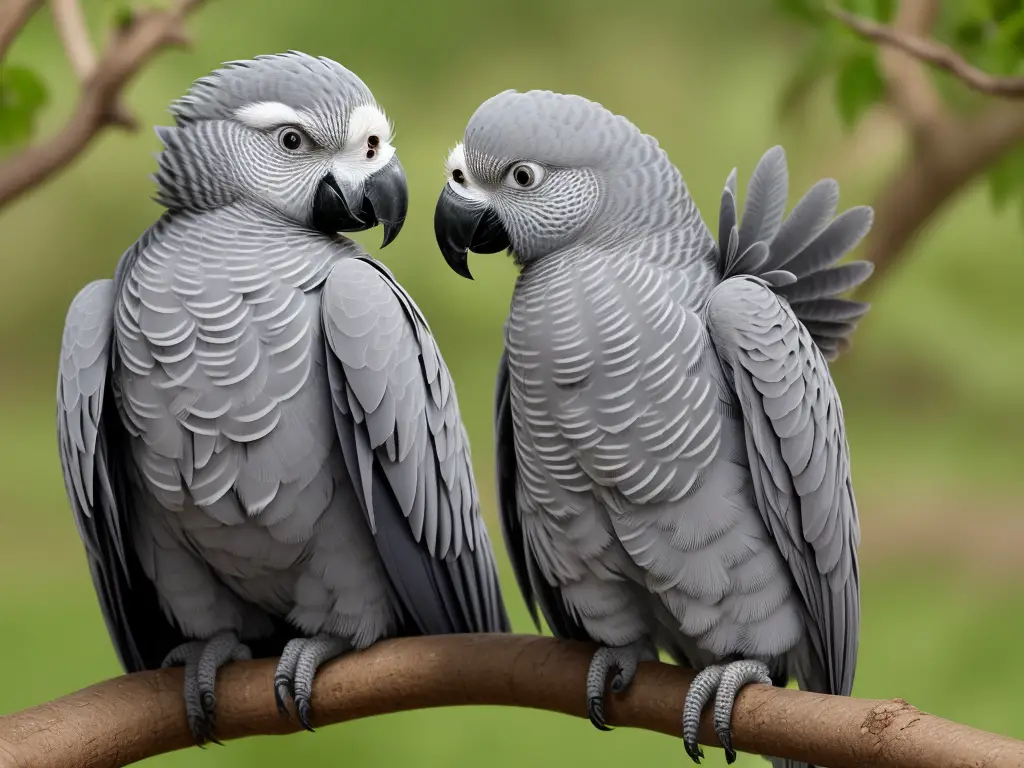
Preparing Celery for Parrots
To prepare celery for parrots, start by washing it thoroughly to remove any dirt or pesticides.
Remove the leaves and chop the celery into small, bite-sized pieces.
This makes it easier for your parrot to eat and reduces the risk of choking.
Serve it fresh and avoid cooking or adding any seasonings, as they can be harmful to parrots.
Remember to introduce celery gradually into your parrot’s diet to monitor their response and make sure it agrees with their digestion.
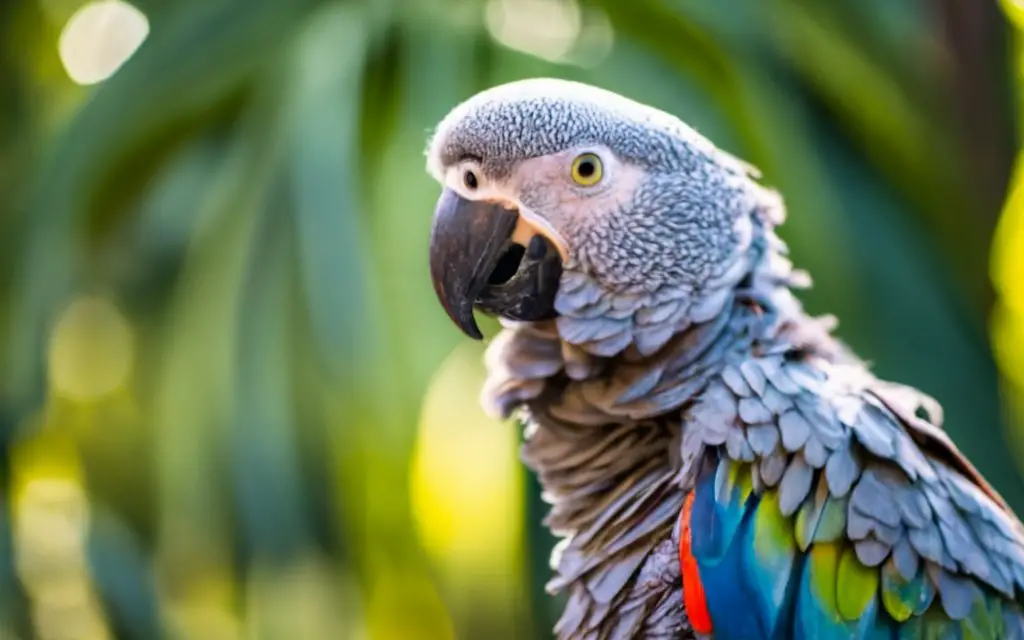
Serving Size and Frequency of Celery in Parrot’s Diet
Incorporate celery into your parrot’s diet in moderation.
Offer small, bite-sized pieces as a treat or mixed with other vegetables.
Providing celery once or twice a week is sufficient to avoid potential risks and ensure a balanced diet.
Monitor your parrot’s response and adjust accordingly.
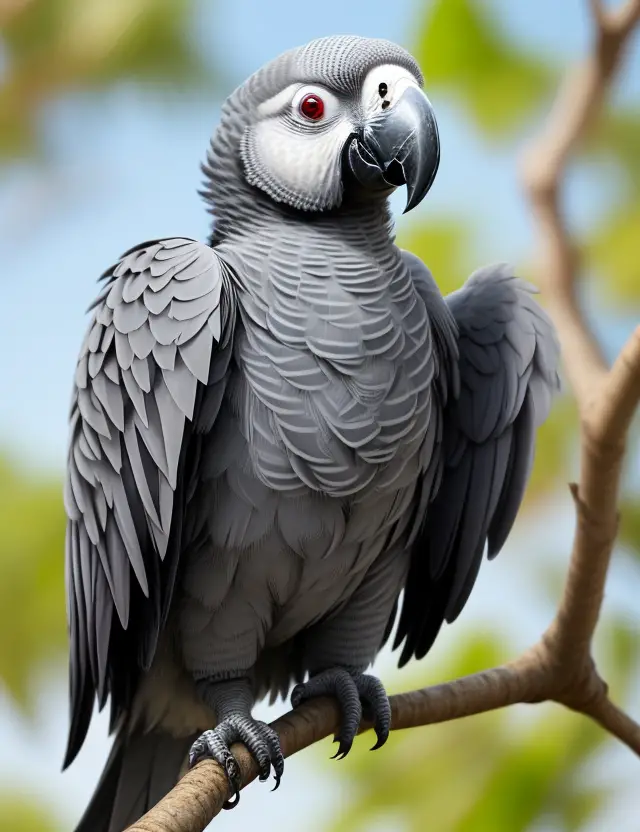
Potential Risks and Considerations
Before offering celery to your African grey parrot, it’s important to be aware of the potential risks and considerations.
Choking Hazard in Celery Stalks
Choking Hazard in Celery Stalks: Celery stalks can pose a choking hazard for African Grey Parrots due to their fibrous texture and stringy strands.
The long, tough fibers can get tangled in a parrot’s throat, leading to potential choking or blockage.
It’s important to take extra caution when offering celery to your parrot and consider alternative vegetables with a softer texture to avoid any choking risks.
Oxalates in Celery and their Effects on Parrots
Oxalates are naturally occurring compounds found in celery.
In high amounts, they can potentially be harmful to parrots, particularly African Grey Parrots.
Oxalates can interfere with calcium absorption, leading to the formation of kidney stones and other health issues.
It’s important to limit the amount of celery or other high-oxalate foods in your parrot’s diet to ensure their overall well-being.
Alternatives to Celery for African Grey Parrots
Looking for alternatives to celery for your African Grey parrot?
Check out these safe options that your feathered friend will love!
Other Vegetables Safe for Parrots
Other vegetables safe for parrots include:
- Carrots: High in beta-carotene and Vitamin A.
- Bell Peppers: Rich in Vitamin C.
- Broccoli: Provides essential nutrients like Vitamin K and folate.
- Spinach: Contains iron and other minerals.
- Green Beans: A good source of fiber and Vitamin C.
- Sweet Potatoes: High in Vitamins A and C.
- Zucchini: Low in calories and packed with vitamins.
Remember to introduce new vegetables gradually and observe your parrot’s response. Variety is key for a balanced diet!
Healthy Snacks and Treats for Parrots
Healthy snacks and treats for parrots include a variety of fruits and vegetables such as grapes, apples, carrots, and green beans. Nuts and seeds are also good options, like almonds and sunflower seeds.
Avoid giving them sugary or salty foods, as these can be harmful to their health.
Always provide fresh and clean snacks, and remember to offer them in moderation.
Frequently Asked Questions
Can African Grey Parrots Eat Celery Leaves?
Yes, African Grey Parrots can eat celery leaves. Celery leaves are rich in vitamins and minerals that are beneficial for their health.
Just make sure to wash the leaves thoroughly and remove any pesticides or dirt before serving them to your parrot.
Offer celery leaves in moderation as part of a varied and balanced diet.
Can Celery Be Given as a Regular Part of a Parrot’s Diet?
Yes, celery can be given as a regular part of a parrot’s diet.
It is low in calories and rich in vitamins and minerals, making it a nutritious addition to their meals.
However, it should be prepared properly to remove any potential choking hazards and fed in moderation to avoid digestive issues.
Can African Grey Parrots Eat Cooked Celery?
African Grey Parrots can eat cooked celery in moderation.
Ensure it is plain, without any seasonings or oils.
Cooking can help make the celery easier to chew for them.
Remember to cool it down before serving and offer it as a part of their balanced diet, along with other fruits, vegetables, and pellets.
Final Verdict
African grey parrots can safely consume celery as part of a balanced diet.
Celery offers numerous nutritional benefits, including vitamins, minerals, and fiber.
However, it is essential to take certain precautions, such as removing the strings and cutting the celery into small, manageable pieces to prevent choking hazards.
Additionally, moderation is key, as excessive consumption may lead to digestive issues.
As with any food, it is crucial to provide a diverse range of fruits and vegetables to ensure their overall health and well-being.

